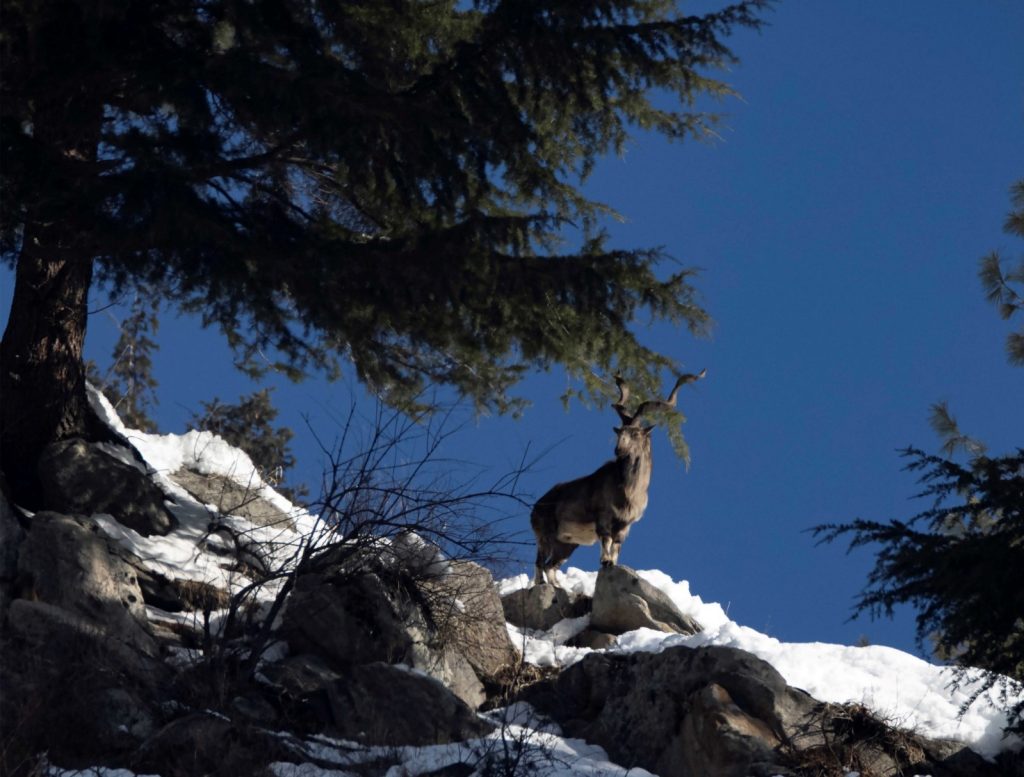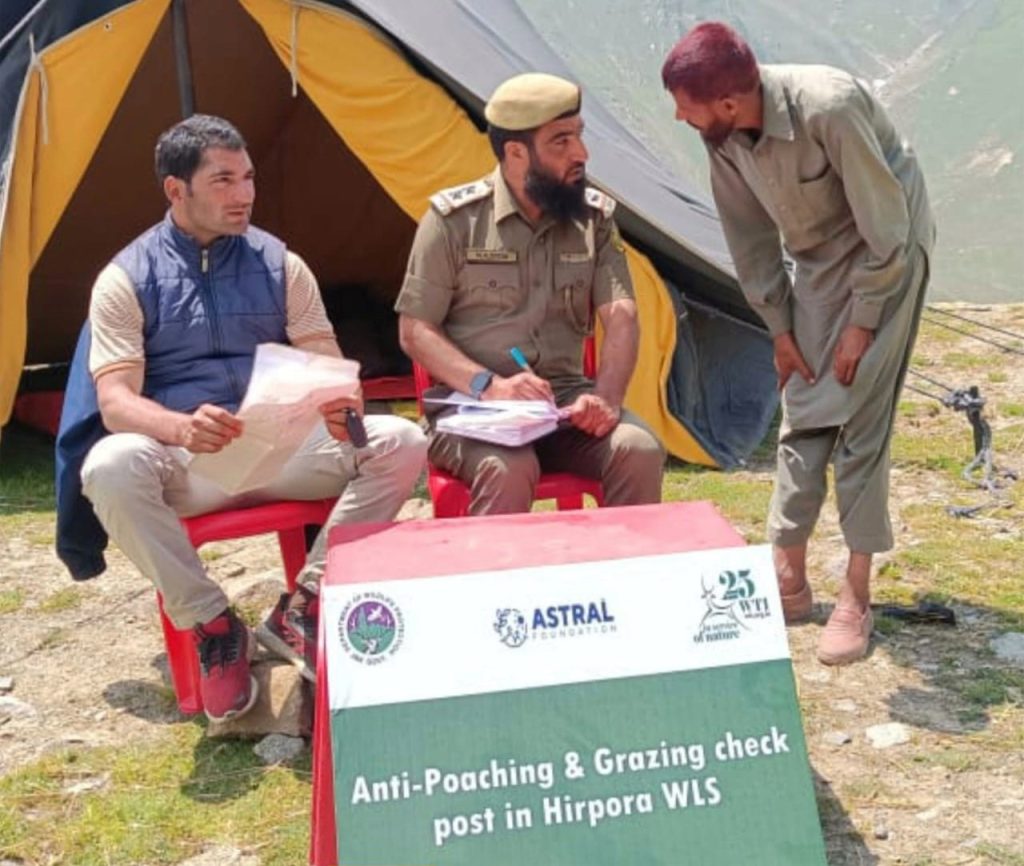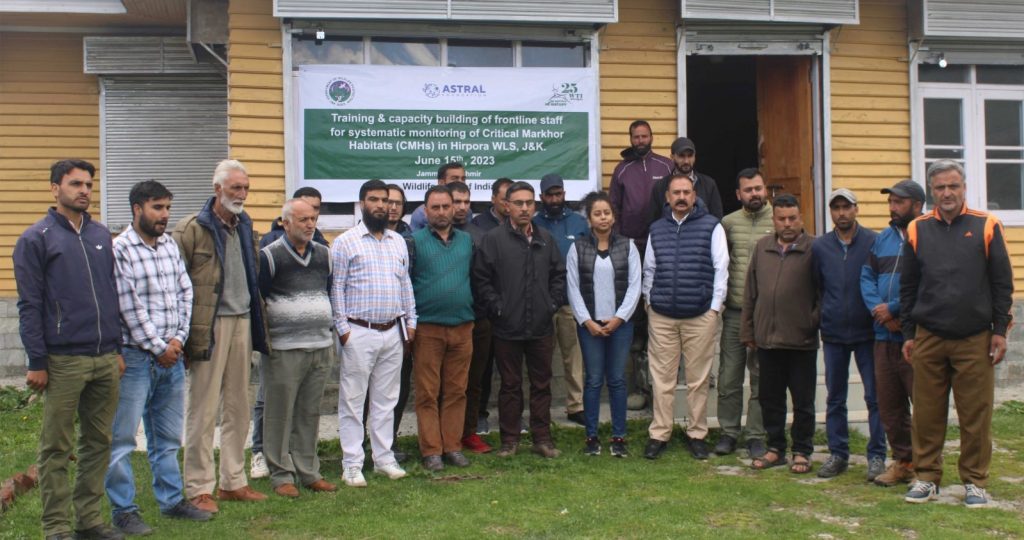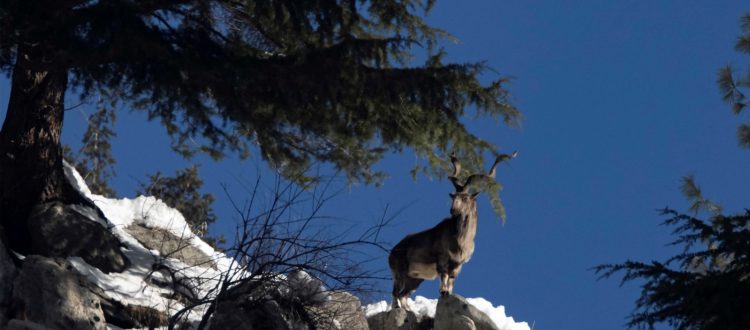Working with migratory herders for Recovery of Pirpanjal Markhor
Hirpora Wildlife Sanctuary (WLS), a paradise of colourful wildflowers, ice-cold springs, high-altitude lakes and snow-clad peaks, hosts several species of plants, birds and threatened mammals. Hirpora WLS is also home to the world’s largest mountain goat, the Pir Panjal Markhor (Capra falconeri). A near-threatened species, listed in Schedule I under the Wildlife (Protection) Act (1972), the Markhor has however been threatened by uncontrolled large-scale grazing on the pastures and poaching. This has resulted in a disastrous impact on the habitat and population of Markhor in the state of Jammu and Kashmir.

The Markhor has been threatened by uncontrolled large-scale grazing on the pastures and poaching | Photo by Shivang Metha
Securing the Critical Markhor Habitats (CMHs) – Modus operandi
Supported by the Astral Foundation, Wildlife Trust of India in collaboration with the Department of Wildlife Protection (DWP) (J&K) conducts social surveys to assess local socio-economic structures and the dependence of herder communities on natural resources. To achieve the conservation goals, the project seeks to engender changes at the community level and reduce the existing threats in the Protected Area (PA). Migratory herding, dispersed in 40-odd grazing pastures, has been one of the major competitors for the resources required by the Markhor. The communities include the Gujjars and Bakkarwals, mainly from Rajouri and Poonch districts.
This year, the Pir Panjal received heavy snowfall and it has led to a delay in the opening of Mughal road. But when it did in the last week of May 2023, the migratory herders soon started corralling their livestock before loading them into the trucks. As the herders started moving to alpine and subalpine pastures for livestock grazing, the DWP and WTI placed monitoring teams. Capacity-building workshops for frontline staff were also organized to get robust and scientific data on the livestock monitoring process. Anti-poaching and grazing camps were established at strategic locations to ensure that no transit herder takes his livestock to the CMHs.

WTI with the support of Astral Foundation has been conducting Anti-Poaching and Grazing in Hirpora WLS | Photo by Sameer
The frontline wildlife staff are constantly regulating and monitoring the livestock grazing in CMHs. This is being done also to stop the trend of migratory herders renting out their pastures to unauthorized herders to earn cash in exchange. Well-off herders who have been practising transhumance for generations now do not come to their traditional pasture lands with their livestock as most of them are employed. However, to keep their ownership, they rent out their pastures to unauthorized herders, leaving no green pasture for rare wild ungulates such as Markhor and musk deer which are already facing tough resource competition.
Exploring the future
Change is widely accepted as the only constant in today’s world; a concept that should be applicable to the migratory herders (Gujjar and Bakkarwal) and their herding practice. Protection of Markhors can be achieved by changing their attitude towards animal and wildlife conservation. This requires enhancing knowledge of the impact of their activities on wild pastures and reducing their dependence to enhance the conservation prospects of Markhor.

Photo by WTI
The Kashmir Markhor Recovery Project seeks to conserve biodiversity while retaining the traditional herding practices of migratory herders. The range of threats the project seeks to address is diverse. However, effective negotiations to develop programmes with the herder community to find a middle ground between the need to secure a safe haven for the Pirpanjal markhor and their livestock herd will always remain central to the community-based conservation efforts.
Sameer Khazir has been working as Assistant Manager in the Western Himalaya Mountain Ungulate Project.
.









